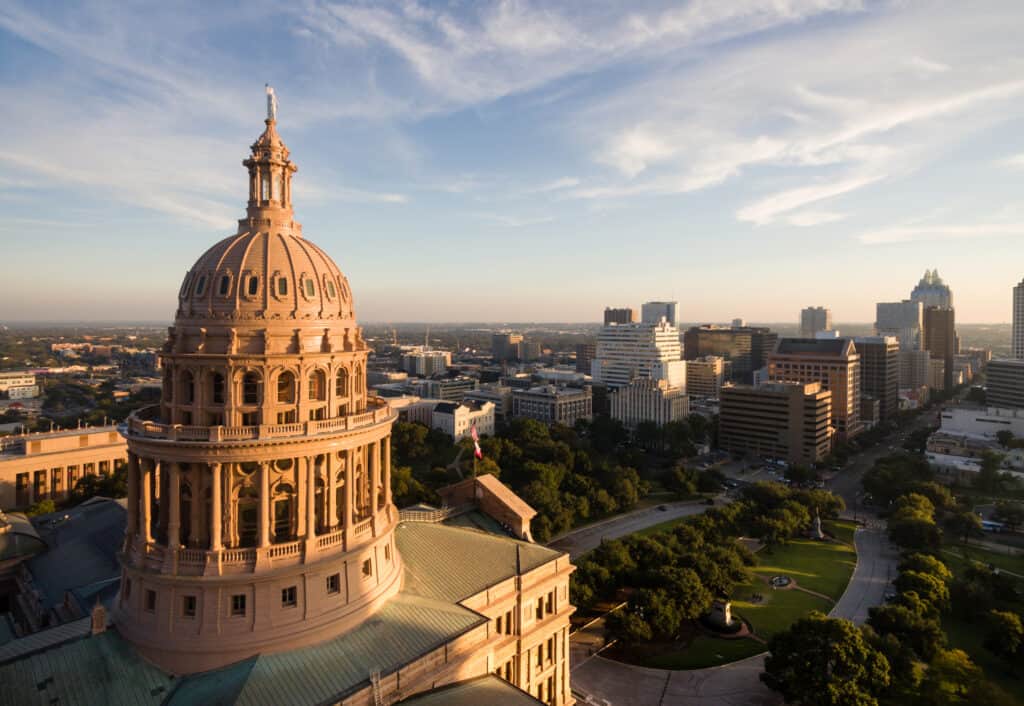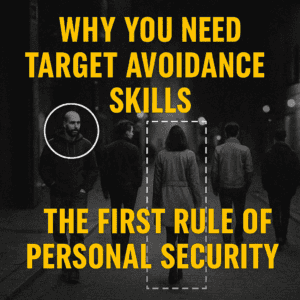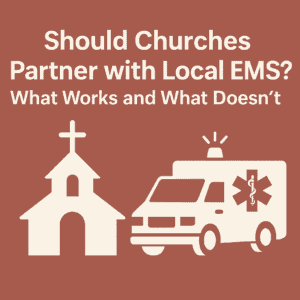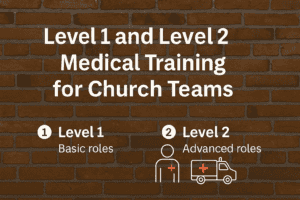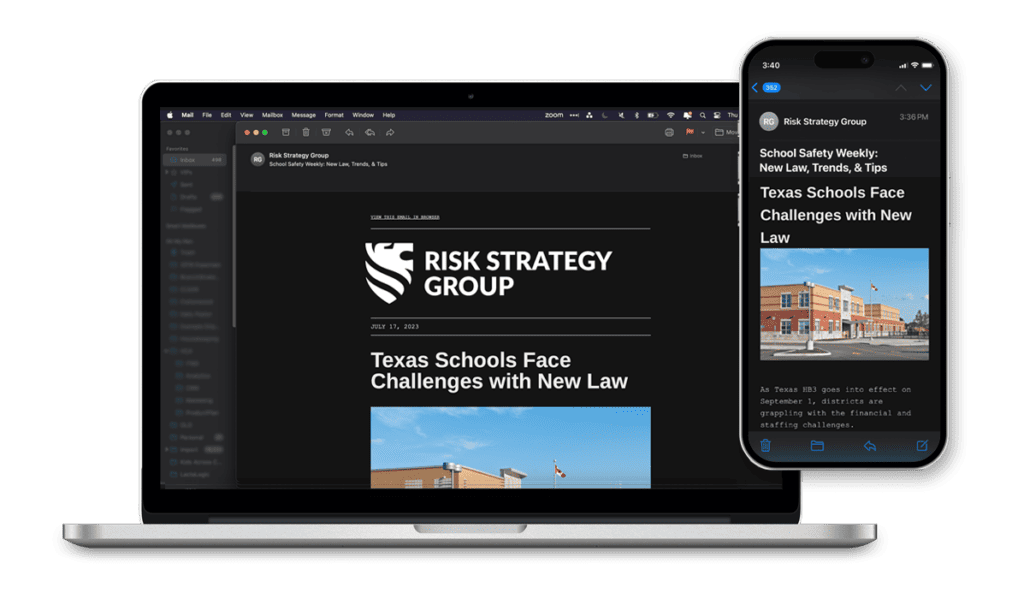In a Nutshel
The newly passed Senate Bill 694 in East Texas, signed into law by Governor Greg Abbott and authored by State Senator Bryan Hughes, grants civil immunity to church security personnel and their organizations. This law, effective from September 1, 2023, addresses concerns about legal risks for volunteer security teams in churches, especially smaller ones lacking resources for professional security. It aims to enhance safety in churches amidst rising gun violence, providing a more secure environment for congregations across Texas.
In More Detail
Texas Senate Bill 694, a noteworthy piece of legislation, has attracted some attention as of late, but there are a number of churches that are unaware of it.
Introduced in the 88th Legislature, this bill revolves around the issue of liability for religious organizations and their employees or volunteers providing security services to the organizations.
The bill has been debated and analyzed extensively, culminating in its passage by the Senate and the House, demonstrating bipartisan support for addressing the concerns it aims to tackle.
The Act aims to clarify and modify the legal framework related to the liability of religious organizations and their security service providers, whether they are employees or volunteers.
Recognizing the importance of maintaining safety and security in places of worship, the bill, ultimately signed into law by Governor Abbott, strikes a balance between protecting the interests of these organizations and ensuring that proper procedures are followed to minimize any foreseeable risks.
In effect, Texas Senate Bill 694 acknowledges and addresses the unique challenges faced by religious organizations when it comes to maintaining a secure environment for their congregations.
By establishing clear guidelines and legal provisions, the bill provides guidance and assurance to religious organizations and their security personnel alike, fostering a safer and more secure atmosphere for people to practice their faith.
Key Provisions
Religious Organizations
Texas Senate Bill 694 pertains to the liability of religious organizations and their employees or volunteers for security services provided to the organization.
Religious organizations are often comprised of various structures and establishments where people gather for worship, events, or educational purposes.
Security Services
Security services in religious organizations can generally include the use of firearms or other security measures to ensure the safety of the attendees, staff, and property.
These services are typically provided by employees or volunteers and can involve activities such as monitoring the premises, controlling access to the location, and maintaining order.
Liability
Under Texas Senate Bill 694, religious organizations and their employees or volunteers are granted immunity from civil liability for any actions associated with the provision of security services.
This means that if an employee or volunteer possesses or uses a firearm in the course of their duties or functions, they would not be held responsible for any injury, damage, or death resulting from their actions or omissions.
The bill amends the Civil Practice and Remedies Code by adding that no cause of action shall arise against a religious organization or its employee or volunteer for providing security services.
This provision applies only to those performing their employment or volunteer duties, and not to individuals acting outside the scope of their responsibilities.
In summary, Texas Senate Bill 694 aims to protect religious organizations and their employees or volunteers from civil liability related to the provision of security services.
This legislation ensures a safer environment for the members of these organizations while reducing the potential legal consequences for those responsible for security.
Legislative Process
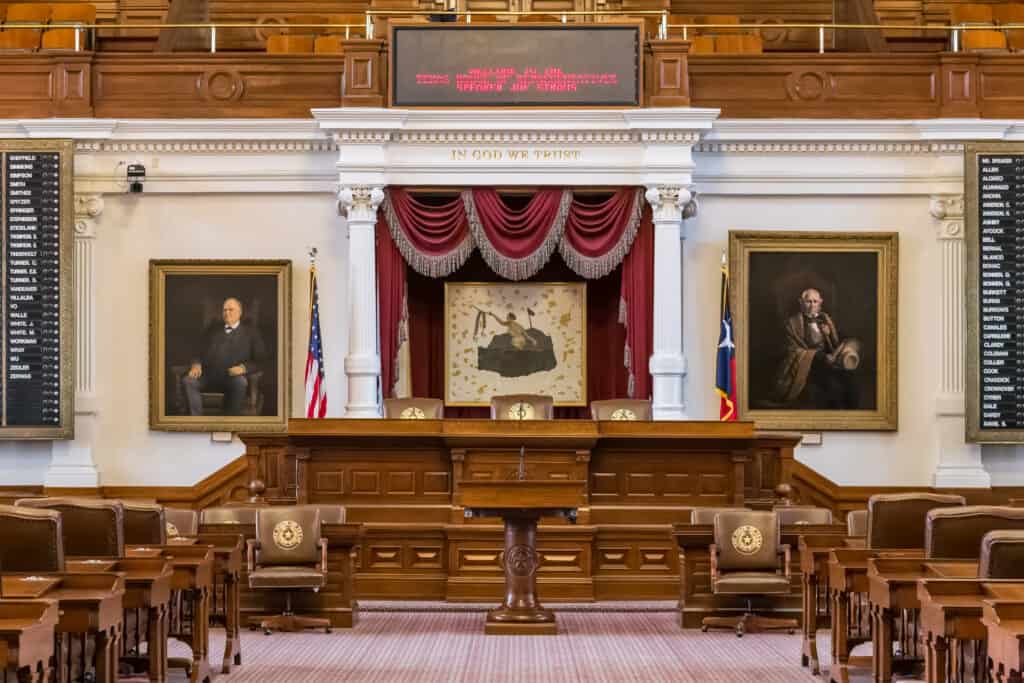
Bill Amendments
Throughout its legislative journey, Texas Senate Bill 694 underwent several stages of review and amendments.
As introduced, the bill focused on regulating the liability of religious organizations and their security personnel, employees, or volunteers.
Authorship
Senator Hughes authored the bill during the 88th Legislature session and the bill gathered support from other legislators.
In its progress through various committees and votes, the bill’s authorship played an essential role in shaping the bill.
Intent and Calendar Placement
Texas Senate Bill 694 was positioned in the legislative calendar with a clear intent to address liability arising from the provision of security services to religious organizations.
The bill aimed to strike a balance between allowing organizations to maintain safety measures and ensuring that they are not held unfairly accountable for incidents that may occur on their premises.
As part of the legislative process, the bill went through various stages such as committees for Judiciary and Civil Jurisprudence, where it was further refined and debated before adoption.
Effective Date
Religious organizations, employees, and volunteers in Texas need to be aware of this new law and its implications.
With an effective date of September 1, 2023, churches should now prepare and implement any necessary changes in their security protocols.
By doing so, they can continue providing a secure environment for congregations while staying within the boundaries set by this legislation.
Frequently Asked Questions
What does Texas Senate Bill 694 aim to address?
Texas Senate Bill 694 addresses the liability of religious organizations and their employees or volunteers when providing security services to the organization. The bill aims to protect these organizations from potential legal issues arising from providing security services. Here is the bill’s text for further details.
How does SB 694 impact church security in Texas?
SB 694 helps religious organizations improve their security measures by easing concerns over potential liabilities associated with these services. This can encourage churches and other religious institutions to hire or receive volunteer security personnel, ultimately enhancing the safety of their congregations.
What are the main provisions of the Texas Church Security Protection Act?
The main provisions of the Texas Church Security Protection Act, also known as SB 694, include defining religious organizations and their liability protections when providing security services, either through their employees or volunteers. It clarifies that these organizations have limited liability exposure in case of incidents or accidents involving security services.
Legal Disclaimer
The information provided in this article regarding Texas Senate Bill 694, also known as the Texas Church Security Protection Act, is intended for general informational purposes only. While efforts have been made to present accurate and up-to-date information, this article does not constitute legal advice. The legal landscape surrounding issues of liability for religious organizations and their security services is complex and subject to change. Readers are advised to consult with legal professionals for advice on specific legal issues related to this bill. The author and publisher of this article disclaim any liability for any loss or damage arising from reliance on the contents of this article. This article is not affiliated with or endorsed by any government agency or official.

